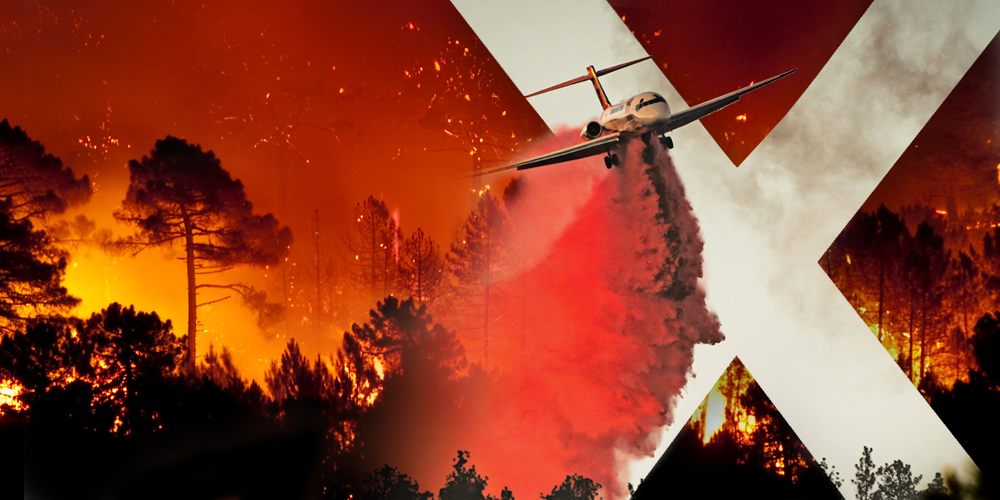Home » Alarm Bells: Rethinking Innovation in a Turbulent World
Alarm Bells: Rethinking Innovation in a Turbulent World

In 2016, Fort McMurray experienced a devastating wildfire that burned over 579,000 hectares, displaced 88,000 individuals, and caused approximately $10 billion in damages. While often viewed as an anomaly, such catastrophic wildfires are increasingly common and difficult to control due to changing climate conditions. John Vaillant, author of the Pulitzer Prize-nominated book "Fire Weather: The Making of a Beast," asserts that hotter, drier weather transforms forests into tinderboxes, challenging emergency responders tasked with combatting unpredictable and intense fires.
During an episode of “Solve for X,” Vaillant discussed the implications of climate change on fire dynamics in conversation with host Manjula Selvarajah. He emphasized that the past two summers have illustrated how climate disruption is now a fundamental issue affecting every aspect of life. Vaillant pointed out that this degree of environmental change demands innovation and a reevaluation of society’s relationship with nature, which has been treated as a bottomless resource. He suggested that unchecked exploitation leads to violent reminders from nature as ecosystems rebel against human disregard.
Vaillant's observations include the increasing frequency and severity of wildfires, as exemplified by the summer of 2023 when Canadian wildfires emitted record-high amounts of radiative energy. He noted that traditional firefighting tactics are becoming ineffective due to the unprecedented scale of modern fires, pointing to a particular instance in Vancouver where an ordinary fire overwhelmed local firefighters, highlighting their lack of preparedness for the extreme conditions created by climate change.
One critical factor for combating the growing fire threat is acknowledging the potential vulnerability of urban areas to 21st-century wildfires. Vaillant warned that changes in climatic conditions, such as rising temperatures and dry spells, make forests more susceptible to ignition. He discussed the need for societal awareness and adaptive strategies to confront these evolving threats.
Recognizing the limitations of conventional responses, Vaillant also spoke about the significance of indigenous fire management practices, such as prescribed burns. These methods, rooted in a deep understanding of ecosystems, can help mitigate risks by reducing underbrush and other flammable materials that fuel wildfires. A collaboration between modern fire sciences and indigenous wisdom is essential for developing resilient fire management strategies.
Furthermore, Vaillant noted the importance of technological innovation but cautioned against a blind faith in “tech solutionism.” He urged the need for a balance between creative problem-solving and a critical examination of the environmental costs associated with technological advancements. During their discussion, Vaillant recognized the oil and gas industry’s past contributions while asserting the necessity of transitioning away from petroleum dependence, encouraging the industry to leverage their expertise for sustainability.
Towards the end of their conversation, both Vaillant and Selvarajah highlighted the urgency for collective action against potential political and environmental challenges. Vaillant remarked that the reshaping of social institutions could lead to dangerous implications if not addressed proactively, drawing parallels to previous natural disasters and human errors in judgment.
In summary, the dialogue illuminated the pressing need to understand and adapt to the realities of climate change, the evolution of fire behavior, and the critical importance of innovative, collaborative solutions to safeguard communities and ecosystems.
MaRS Discovery District
https://www.marsdd.com/
MaRS is the world's largest urban innovation hub in Toronto that supports startups in the health, cleantech, fintech, and enterprise sectors. When MaRS opened in 2005 this concept of urban innovation was an untested theory. Today, it’s reshaping cities around the world. MaRS has been at the forefront of a wave of change that extends from Melbourne to Amsterdam and runs through San Francisco, London, Medellín, Los Angeles, Paris and New York. These global cities are now striving to create what we have in Toronto: a dense innovation district that co-locates universities, startups, corporates and investors. In this increasingly competitive landscape, scale matters more than ever – the best talent is attracted to the brightest innovation hotspots.


